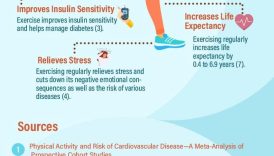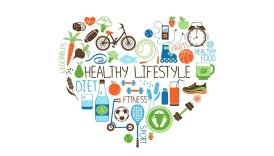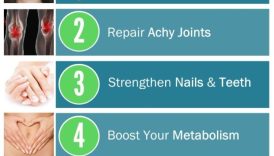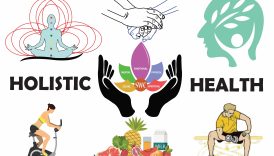From Good to Great: Unleashing the Power of Living Good Vitamins in Your Life
Understanding the Importance of Vitamins
Vitamins play a crucial role in maintaining optimal health. They are essential for numerous bodily functions, from energy metabolism to immune system support. Imagine your body as a high-performance vehicle; vitamins act as the fuel it needs to run smoothly. For many, the complexities of modern life can lead to nutrient gaps, making it vital to understand the importance of good vitamins. A balanced intake can mean the difference between feeling fatigued and energized.
- From Good to Great: Unleashing the Power of Living Good Vitamins in Your Life
- Understanding the Importance of Vitamins
- Overview of Good Vitamins
- Benefits of Good Vitamins
- Boosting Immune System
- Improving Overall Health
- Sources of Good Vitamins
- Vitamins in Food
- Supplements for Vitamin Intake
- Impact of Good Vitamins on Mental Health
- Enhancing Cognitive Function
- Reducing Stress and Anxiety
- Good Vitamins for Skin and Hair Health
- Promoting Skin Radiance
- Strengthening Hair Structure
- Recognizing Vitamin Deficiencies
- Common Signs of Deficiency
- Importance of Regular Check-ups
- Best Practices for Vitamin Absorption
- Pairing Vitamins for Maximum Absorption
- Timing of Vitamin Intake
- Balancing Vitamin Intake
- Understanding Recommended Daily Allowances
- Avoiding Overconsumption
- Incorporating Good Vitamins into Your Daily Routine
- Meal Planning for Vitamin-Rich Diet
- Making Time for Vitamin Supplements
- Consultation with Healthcare Professionals
- Importance of Seeking Professional Advice
- Personalized Vitamin Recommendations
- Setting Realistic Health Goals
- Tracking Progress with Vitamins
- Adjusting Lifestyle for Optimal Health
- XII. Testimonials and Success Stories
- Real-life Experiences with Good Vitamins
- Inspiring Journeys to Better Health
Overview of Good Vitamins
Good vitamins refer to the diverse vitamins that contribute to overall health. Key vitamins include:
- Vitamin A: Supports vision and immune health.
- Vitamin C: A powerful antioxidant essential for skin and tissue repair.
- Vitamin D: Crucial for bone health and immune function.
- B Vitamins: Important for energy production and brain health.
Incorporating these vitamins into daily diets can enhance vitality and well-being.
Benefits of Good Vitamins
Boosting Immune System
One of the most significant benefits of good vitamins is their ability to strengthen the immune system. For instance, adding Vitamin C-rich foods like oranges and bell peppers can help ward off common colds and flu. Whenever a family member tends to catch a cold, a vitamin-packed smoothie is a go-to remedy in many households. Key vitamins that boost immunity include:
- Vitamin C: Enhances white blood cell production.
- Vitamin D: Regulates immune responses.
- Zinc: Vital for immune cell function.
Improving Overall Health
Good vitamins also contribute to overall health, enhancing energy levels and promoting longevity. Incorporating B vitamins, such as B12 and folate, can increase energy and improve mental clarity. Benefits include:
- Better digestion
- Enhanced mood
- Improved skin health
Regular vitamin intake not only fosters wellness but encourages preventive care for a healthier future.
Sources of Good Vitamins
Vitamins in Food
One of the best ways to get good vitamins is through food. A balanced diet rich in colorful fruits, vegetables, whole grains, and lean proteins can supply essential vitamins naturally. For example, a vibrant salad packed with spinach, tomatoes, and carrots is not just visually appealing; it’s also a powerhouse of vitamins. Here are some vitamin-rich food sources:
- Vitamin A: Carrots, sweet potatoes, and leafy greens
- Vitamin C: Citrus fruits, strawberries, and broccoli
- Vitamin D: Fatty fish, egg yolks, and fortified dairy products
Supplements for Vitamin Intake
Sometimes, dietary sources alone may not meet vitamin needs, especially for those with specific health conditions or dietary restrictions. In such cases, vitamin supplements can be an effective solution. Consider these tips when choosing supplements:
- Consult with a healthcare professional to identify your needs.
- Look for high-quality, reputable brands to ensure potency and purity.
Combining food sources with supplements, when necessary, can create a well-rounded vitamin intake that supports overall health.
Impact of Good Vitamins on Mental Health
Enhancing Cognitive Function
Good vitamins can significantly enhance cognitive function, driving better memory, focus, and overall brain health. For instance, incorporating Vitamin B12-rich foods, like eggs and dairy, helps maintain nerve cells and promotes mental clarity. Studies have shown a connection between certain vitamins and brain performance:
- B Vitamins: Support neurotransmitter function, boosting mood and cognition.
- Omega-3 Fatty Acids: Found in fatty fish, they play a role in brain plasticity.
Reducing Stress and Anxiety
Additionally, vitamins can be powerful allies in reducing stress and anxiety. Vitamins C and E act as antioxidants, helping to combat oxidative stress that can exacerbate anxiety levels. Regularly enjoying vitamin-rich foods can turn an average day into one filled with calmness. When seeking stress relief, consider:
- Vitamin D: Low levels are linked to mood disorders, so get some sunshine!
- Magnesium: Found in nuts and whole grains, it can help promote relaxation.
Prioritizing these vitamins not only fosters a healthy mind but also supports emotional resilience.
Good Vitamins for Skin and Hair Health
Promoting Skin Radiance
In the quest for glowing skin, good vitamins play an essential role. Vitamins like C and E are particularly beneficial, as they help combat free radicals and support collagen production. Imagine applying a rejuvenating face mask, rich in vitamin E, and feeling the difference in your skin’s texture and brightness. Consider adding these skin-loving vitamins to your routine:
- Vitamin C: Reduces dark spots and improves overall skin tone.
- Vitamin A: Enhances skin cell renewal, leading to a smoother appearance.
Strengthening Hair Structure
When it comes to hair health, vitamins can make a noticeable impact as well. Biotin, a B vitamin, is often touted for its ability to strengthen hair and promote growth. Personal experiences of incorporating biotin-rich foods, such as avocados and nuts, reveal impressive results—thicker, healthier hair. Key vitamins for hair strength include:
- Vitamin D: Stimulates hair follicle growth.
- Vitamin E: Supports scalp health and prevents hair loss.
Embracing these vitamins can transform your skincare and haircare routine, leading to vibrant skin and lush hair.
Recognizing Vitamin Deficiencies
Common Signs of Deficiency
Recognizing vitamin deficiencies can be pivotal for maintaining optimal health. For instance, fatigue, frequent infections, and unexplained weight changes could all hint at a lacking nutrient. Personal experiences often reveal that clients didn’t realize they were low in Vitamin D until they noticed persistent fatigue despite a full night’s sleep. Here are some common signs to watch for:
- Vitamin A: Dry skin and night blindness.
- Vitamin C: Frequent bruising and slow healing of wounds.
- Vitamin B12: Numbness and tingling in hands and feet.
Importance of Regular Check-ups
Regular health check-ups are essential for identifying vitamin deficiencies early on. During these visits, healthcare professionals can conduct blood tests to gauge vitamin levels, ensuring timely intervention if needed. It’s a proactive approach that can save you from potential health issues down the line. Consider scheduling annual check-ups to stay informed about your nutrient status and make necessary adjustments before deficiencies lead to significant health concerns.
Best Practices for Vitamin Absorption
Pairing Vitamins for Maximum Absorption
Maximizing vitamin absorption isn’t just about taking the right supplements; it’s also about how you pair them. For instance, Vitamin D works best when consumed with healthy fats. Think about enjoying avocado toast topped with a poached egg—this combination boosts both absorption and flavor! Here are some effective pairings:
- Vitamin C and Iron: Helps improve iron absorption. Ideal to pair spinach salad with citrus dressing!
- Vitamin A and Fats: Fatty foods enhance the absorption of fat-soluble vitamins like A, D, E, and K.
Timing of Vitamin Intake
Timing is equally important when it comes to vitamin intake. Taking certain vitamins with meals can enhance their absorption. For example, fat-soluble vitamins should be taken during meals containing fats. A simple routine could look like this:
- Morning: B vitamins and Vitamin C for energy.
- Evening: Vitamin D and calcium for bone health.
Adapting your intake timing alongside these pairing methods can significantly improve how your body utilizes these essential nutrients.
Balancing Vitamin Intake
Understanding Recommended Daily Allowances
Balancing vitamin intake is essential for maintaining overall health, and knowing the Recommended Daily Allowances (RDAs) can guide you in the right direction. Each vitamin has specific daily needs based on age, gender, and activity level. For instance, a busy professional may require more B vitamins for energy than someone with a sedentary lifestyle. Here’s a quick overview of some common RDAs:
- Vitamin C: 75 mg for women, 90 mg for men
- Vitamin D: 600 IU for adults up to age 70
- Vitamin A: 700 mcg for women, 900 mcg for men
Avoiding Overconsumption
While it’s vital to meet these recommendations, it’s equally important to avoid overconsumption, as too much of certain vitamins can be harmful. For example, excess Vitamin A can lead to toxicity, causing nausea and headaches. To strike a balance:
- Focus on whole foods as primary sources.
- Use supplements judiciously and under professional guidance.
Keeping a balanced approach enhances health without risking vitamin-related issues, leading to a more vibrant and energetic life.
Incorporating Good Vitamins into Your Daily Routine
Meal Planning for Vitamin-Rich Diet
Incorporating good vitamins into your daily routine starts with thoughtful meal planning. Taking a little time each week to create a balanced menu can make a significant difference in your vitamin intake. Imagine opening your fridge to find vibrant, fresh ingredients ready for a nutrient-packed stir-fry! Here are some tips for creating a vitamin-rich diet:
- Incorporate colorful vegetables: Carrots, bell peppers, and leafy greens are not only appealing but also nutrient-dense.
- Add variety: Include different protein sources like beans, fish, and nuts to ensure you get diverse vitamins.
- Plan breakfast: Smoothies with spinach, berries, and a scoop of yogurt are a delicious way to start the day.
Making Time for Vitamin Supplements
While whole foods are essential, sometimes vitamin supplements can help fill gaps in nutrition. Make it a habit to take your supplements at a specific time each day, such as with your morning coffee or breakfast. To ensure consistency:
- Set reminders on your phone: This helps to prompt you to take your vitamins regularly.
- Keep them visible: Store supplements somewhere you see every day, like next to your toothbrush.
By intentionally incorporating both meals and supplements into your routine, you pave the way for a healthier, more vibrant life.
Consultation with Healthcare Professionals
Importance of Seeking Professional Advice
When it comes to optimizing your vitamin intake, consulting with healthcare professionals is invaluable. While general knowledge about vitamins is beneficial, a healthcare provider can offer personalized insights based on your unique health profile. For instance, a friend of mine discovered through a consultation that her fatigue was linked to a Vitamin D deficiency, something she had never considered. Seeking professional advice can help:
- Identify any existing deficiencies
- Rule out potential health issues
- Provide guidance tailored to your age, lifestyle, and medical history
Personalized Vitamin Recommendations
Healthcare professionals can also provide personalized vitamin recommendations that suit your individual needs. Whether you’re an athlete needing more B vitamins for energy or a busy parent looking to boost your immune system, tailored suggestions can make all the difference. Consider the following approaches:
- Blood tests: To check for deficiencies.
- Dietary assessments: To understand your eating habits fully.
With the right consultation, you can embark on a well-informed journey towards improved health and vitality.
Setting Realistic Health Goals
Tracking Progress with Vitamins
Setting realistic health goals is crucial for long-term wellness, especially when it comes to incorporating vitamins into your routine. One effective method is to track your progress. For instance, creating a simple log or using a health app can help you monitor your daily vitamin intake and notice improvements in your energy levels and overall well-being. Here’s how to track effectively:
- Daily Log: Record your meals and any supplements taken.
- Health Journal: Note changes in mood, energy, and any physical improvements.
Adjusting Lifestyle for Optimal Health
As you track your progress, be ready to adjust your lifestyle accordingly. Small changes can lead to significant benefits over time. For example, if you notice that a lack of Vitamin C correlates with frequent colds, you might plan to include more citrus fruits in your diet. Consider practical adjustments:
- Meal Prep: Allocate time each week to prepare vitamin-rich meals.
- Active Breaks: Introduce short walks or stretches to boost energy levels.
By setting achievable goals and remaining adaptable, you can create a sustainable path towards optimal health.
XII. Testimonials and Success Stories
Real-life Experiences with Good Vitamins
Nothing speaks more powerfully than real-life experiences with good vitamins. Take Sarah, for instance, who struggled with low energy levels for years. After consulting a healthcare professional, she started a regimen rich in Vitamin B and Omega-3s. Within weeks, she noticed a remarkable increase in her energy and focus, enabling her to juggle work and family life more effectively. Here are some common positive outcomes shared by others:
- Increased energy levels
- Improved mood and mental clarity
- Enhanced skin and hair health
Inspiring Journeys to Better Health
Then there’s Mark, who decided to incorporate vitamins into his fitness routine. He committed to a balanced diet alongside Vitamin D supplements, which not only improved his muscle recovery but also transformed his overall health. His inspiring journey shows how dedicated efforts can lead to tangible results. These testimonials highlight that with the right vitamins and a consistent approach, anyone can embark on a journey to better health and well-being. Each story is a powerful reminder that small changes can lead to significant improvements in the quality of life.





